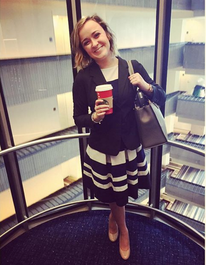 By Gabrielle Woodard It’s a Marathon not a Sprint: Political PR session at National Conference was lead by Christopher Harvin of Sanitas International. Sanitas International is a Political PR consulting firm out of Washington, D.C. Harvin was a member of PRSSA when he was in college and remembered being in the audience’s shoes 20 years ago when he attended PRSSA National Conference in Seattle. This gave the audience some reference for where they could be 20 years from now. One of the main focuses of this session was how public relations impacts campaigns. Harvins’ first example was of current President Barack Obama’s 2008 campaign tactic of using YouTube. Harvin pointed out that is reached Obama’s targeted audience of younger voters and used a free service with low cost production. Harvin used the statistic that thirty percent of America saw Obama’s videos on YouTube, very little paid media could have that kind of length. In comparison, Harvin said that this year’s Election is all about media exposure. Trump is making the news and getting the exposure, unlike a lot of the candidates. The Internet has made a huge difference in recent elections, there is now online fact checking and everything is public knowledge. Ben Carson has been “attacking the media” but the “practitioner needs the media as much as the media needs the practitioner,” said Harvin. Harvin said that this year’s election has been all about getting the public and the media’s attention, Trump and other candidates have been using the method of, “if they’re talking, no one else is being heard,” said Harvin. Harvin explained that while he had worked for Republican presidents before, he was not involved in this year’s election he wasn’t satisfied with any of the candidates, “it would be very hard to work for someone I didn’t support,” said Harvin. After the discussion of the current election, someone in the audience asked a very thoughtful question, “ how can I stay involved with political PR, but I don’t like any of the current candidates?” Harvin, being in the same situation recommended others follow in his footsteps, “stay issues focused,” said Havin. He went on to explain that while issues can still have partisan influence, it allows one to stay about the fray and being associated with a candidate they don’t 100% agree with. Harvin said that political communication is like “a chess match, it is all a game.”
0 Comments
by Gabrielle Woodard There aren’t many people who see the opportunities provided by practicing public relations in the government or political realm. One thing to know is, often times, in the political world public relations is referred to as public affairs. As defined by prdaily.com: “Public affairs relates to matters that concern the public directly. This could include legislation, policing, and public administration, as well as other elements. Public relations on the other hand, focuses more on the company’s connection with the public." 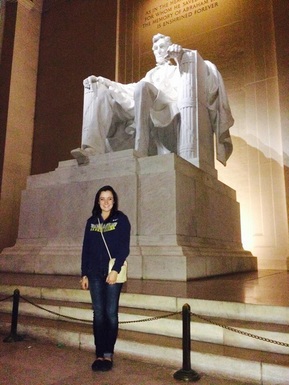 Photo Courtesy: Elline Concepcion Photo Courtesy: Elline Concepcion So, just know that as a PR practitioner, you are capable of doing public affairs work. In the political PR session at PRSSA National Conference the main speaker was Bob Lehrman, who currently works for the Federal Communications Commission. Lehrman got his first job thanks to one of his classmates at Tuft’s University, Kurt Vonnegut. Lehrman said after he was awarded the job he was able to read the letter in which Vonnegut had written. In the recommendation letter, Vonnegut had said he believed Lehrman was qualified for the job but would do much better in Hollywood. Due to the audience’s particular interest in internships within political public relations, Lehrman recommend when applying to internships to “cast a wide net” and apply to many places. He also recommended to “pick something you’re fascinated by” because when you are very interested in something, you are more likely to learn while doing it. Lehrman emphasized multiple times to research the organization and know as much as you can about it before interviewing. Much like the corporate world, government agencies want you to know the organization for which you are interviewing to the fullest extent possible. I highly recommend anyone interested in any kind of public relations researches jobs offered within the government. There are jobs in the corporate sector, non-profit and agency. Government jobs often provide stable work and allow for growth within multiple organizations. by Morgan Jupina For many Kent State students, college graduation is quickly approaching, and it’s time to meet the “real world.” Job searching, resume building and interview prepping are all a part of our final sprint as college students. But what if you’re still trying to figure out what you want to be when you grow up? I had the opportunity to meet with someone who might be able to provide you with a unique perspective. “A lot of what we deal with is foreign individuals who threaten the United States,” he explained. Twenty-year public service veteran and passionate guest speaker at this year’s KSU Media Ethics Workshop, Joe Vealencis, sat down with me to discuss the ins and outs of a career in public service. Vealencis, director of the Office of Strategic Communications at the National Counterterrorism Center (NCTC) – created in 2004 in an effort to stop terrorist action in the United States and abroad – ensures communications are coordinated in various tasks. Vealencis’ responsibilities range from facilitating visits to NCTC from senior officials of foreign organizations, to overseeing public affairs specialists who work on a wide variety of communication, design and publication assignments. Aside from being a man in a suit with a profoundly intimidating career, I learned that he landed his job by following his dream to help people. Vealencis, who wanted to be a lawyer at a very young age, graduated with a degree in marine and environmental science from the United States Coast Guard Academy. After beginning his career as a Commanding Officer in the U.S. Coast Guard, Vealencis eventually worked his way from Senior Legislative Liaison for the Office of the Director of National Intelligence, to his current position. Law to environmental science to NCTC is quite a winding path, but Vealencis is a prime example of being able to accomplish anything you set your mind to. Vealencis expressed that “the mission at the center” of his job is the most gratifying part of his chosen career because he gets to help protect Americans. Obviously, he didn’t graduate college knowing how to counter terrorism, but he went after a job he was interested in. “Public service has always been something that interested me and opportunities presented themselves,” said Vealencis. “I feel good about myself when I go home at night.” Sometimes, when attacks such as the Boston Marathon Bombing occur, Vealencis’ job can become emotionally difficult. “It would be hard to describe what a punch in the gut that was for the men and women of NCTC,” Vealencis remembered. “Some say we should have checked the brothers’ Facebook posts, Twitter and social media even after they were cleared through a robust investigation.” He said he was taking a much-needed vacation in the Dominican Republic, but came back immediately when he had heard about the attack. “I didn’t have to. I just came back. A lot of people did and that’s the kind of place we work,” he said. “We’re going to try to protect you. It’s our family too; it’s our friends too, and it’s our neighbors.” It was evident that Vealencis was remarkably passionate about his career, which I believe to be a great model to follow. Careers in public service can range from federal, state and local government agencies, as well as public and private organizations, and can bring great benefits. Vealencis told me that aside from excellent health benefits, public service allows people to be able to do great things, and it provides a sense of stability. He suggested that students interested in a similar career path develop skill sets in which they are humble, a good communicator in written and spoken word, and that they are able to drive consensus within a free and open conversation. However, he said students also need to have patience in a public service job. “The wheels of government do not turn quickly,” explained Vealencis. “We would rather do it right than do it quick, and those are naturally at odds with each other.” Whether you desire to work in public service or not, Vealencis shows how taking risks for what you’re interested in can get you further in the long run. Don’t be discouraged if you don’t know what you want to be when you graduate. According to Vealencis’ story, you can be anything you set your mind to. Vealencis encourages students to apply to any positions they are interested in even if it is not a first choice. Eventually, you will migrate to a career in public service you enjoy or to the job you’ve dreamed of. “Don’t give up. Keep trying and don’t put all your eggs in one basket.” he said. Watch the video below for more from the Vealencis interview. 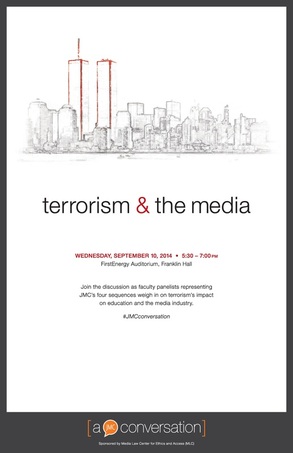 by Jamie Brian and Gabrielle Gentile Kent State University's School of Journalism and Mass Communication hosted an open forum on Sept. 10 to recognize the 13th anniversary of 9/11 and discuss the effects of terrorism on American society. The panel discussion “Terrorism and the Media” featured JMC faculty members Jan Leach, Stephanie Danes Smith and Wendy Wardell relating their views on terrorism from experiences in their respective fields. The panel examined the moral and ethical impact of terrorism on public relations, advertising, journalism and digital media. JMC Director Thor Wasbotten encouraged students to participate in the discussion. “Your first media memory was a terrorist attack that led to a lot of other things happening throughout this country and the world. It’s been a part of your life for as long as you can remember,” Wasbotten said. “Terrorists will exploit whatever tactic that gains the most media attention. This isn’t just a news issue. It affects you, too.” Wardell offered her view from an advertising perspective. She said advertising is all about the connection between people and brands and, more importantly, brands to consumers. Some may have been confused why advertising was present at a terrorism event. Wardell explained much of terrorism employs very sophisticated, strategic advertising. ISIS demonstrates this very complex marketing and advertising. ISIS' increasing strength caused growing concern among students and faculty. Former CIA senior executive Smith said ISIS’ messaging is extremely sophisticated and effective. “Terrorism today is more complicated, more widespread and, potentially, more dangerous than 9/11,” Smith said. “ISIS is not a terrorist organization; it is a terrorist army.” ISIS uses semantics and words that resonate strongly with its target demographics. ISIS recently declared the creation of the Islamic caliphate. Smith explained the word caliphate holds a very deep and spiritual meaning with Muslims. Smith said she has confidence the U.S. will be successful in destroying ISIS but posed a concerned whether or not the U.S. will ever be successful in destroying the ideology behind it. Leach added her own perspective on terrorism via her media ethics background. She explained pictures and videos can be very effective but can also be offensive. She said it is vital to examine the newsworthiness and ethics behind a picture and how to minimize harm as a reporter, journalist or consumer of media. Leach responded to a student who noted media in the states is very American-centric. She explained American media is in the business to make money. Americans want to buy and hear the media they want to hear. Wardell elaborated by explaining what Americans say they want to consume and what they actually want to consume are two very different things. Leach closed the conversation with a call for students to take the future of media into their own hands. “You are the future, and you can make a difference. I see in you, the opportunity to use other forms of media to sell the information,” Leach said. Students were very engaged and eager to share their thoughts during this discussion. The room was full of passionate young people ready and willing to take Leach’s call to action. The event had a great turnout and was a complete success for everyone involved. It is always a humbling and enchanting experience when faculty and students meet to collaborate on a prominent world issue. Wasbotten plans to host forums once a month to engage student and faculty perspectives. Next month’s conversation is entitled “Diversity Redefined.” 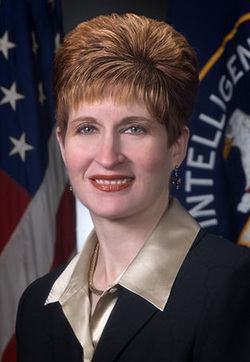 by Stephanie Smith Often, public relations students will approach me—after hearing that I worked for the federal government for nearly 30 years—and say, “I’d really like to work for the federal government. How do I go about landing a job there?” They’re often surprised when my response is a simple question: “What is it about government work that interests you?” If this question is met with blank stares, I usually follow up by asking: “What issues do you care about? What sort of public service are you passionate about?” These questions can be conversation stoppers. I’m still trying to figure out why, but it may be the case that for many students, the federal government looks sort of monolithic—if you work for the federal government, you work for the government. End of conversation. In truth, working for the government in public affairs, including public engagement, public information and public advocacy, is highly differentiated. No two agencies of the government are the same; they differ by mission, by culture and by design. This means, of course, that the role of the public communicator will differ depending on where one works within the government. I spent nearly 30 years working in national security and intelligence; that’s quite a different mission and culture than working for the Department of Agriculture. Explaining those differences, of course, is what high school civics classes are all about and not the purpose of this blog. Instead, I’ll focus on a few “essentials” for those who want to pursue a career in government public affairs, whether as a federal employee or as a contractor working for an agency that supports the government. • Understand the role of government and the legislative process. Remember that old School House Rock cartoon, often rebroadcast by Jon Stewart, about how a bill becomes a law? It turns out that’s pretty important stuff. The government, at any level, works with issues, policy, laws and legislators. If you aren’t sure about how government works or about how the legislative process works, get familiar with it. • Pick your passion—and do your homework. Are you interested in terrorism? Anti-bullying legislation? The environment? Food safety? Human trafficking? Healthcare reform? Or is your passion working for political campaigns, such as getting people elected or getting legislation passed? One of the best ways to prepare for a public affairs job is to immerse yourself in an issue that plays to your passions. Study the issue deeply and understand who influences that issue. Which departments of government, which specific legislators and which specific lobbying groups and public interest groups focus on the issue? If you are interested in healthcare reform, for example, take some public health classes. Read all that you can. This information will be helpful with your job search strategy, on your résumé and in job interviews. And by the way, it usually takes time to land a public affairs job inside the federal government. Start preparing now. • Know the difference between public relations and public affairs. Yes, there are similarities. Both work with goals, strategies and objectives. Both use the tools and tactics of communication. Both seek to share information, promote understanding and persuade people. Both seek to build, manage and sustain relationships with stakeholder publics. Public affairs, however, primarily handles issues, not commercial activity. In public affairs, you deal with causes, problems, public policy and laws. You build real grassroots coalitions and you deal with many types of stakeholders. (Think of the hundreds of stakeholder groups involved with healthcare reform.) If you become a government employee, you will probably not be concerned with business development, client relations and billable hours. But you will be concerned with constituent relations, accountability reviews and congressional inquiries. • Understand reputation management and crisis management. Let’s face it, the federal government isn’t popular. Most Americans see it as too big, too costly and too ineffective until they need it. If you work in government public affairs, you will be dealing with a “client” who is always controversial and frequently misunderstood, one whose reputation regularly takes a beating in the press. Sure, people complain when Starbucks® raises their prices, but they still line up for coffee (at absurd prices) and they don’t scream that Starbucks should be eliminated. When people get mad at the government, the issues are usually large, the stakes are high and tempers are hot. (Think about the whole debate over the healthcare.gov website.) You will always be explaining, defending and protecting your client’s reputation, you will regularly face crises of public confidence, you will always face vocal and passionate opponents and you will be expected to fix real problems—not to simply create cool viral videos or Pinterest postings. Bottom line: If you like working for clients that are cool, fun, hip and beloved by their customers, government public affairs is probably not for you. But if you like working on big ideas, if you want to be part of big change and if you want to make a difference in people’s lives, government public affairs is an endlessly fascinating and meaningful career. |
Archives
February 2024
Categories
All
|
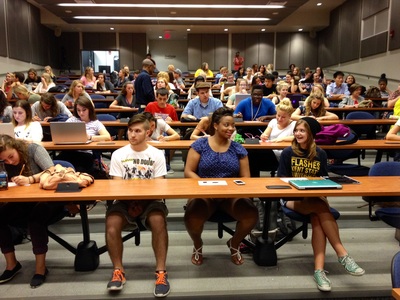
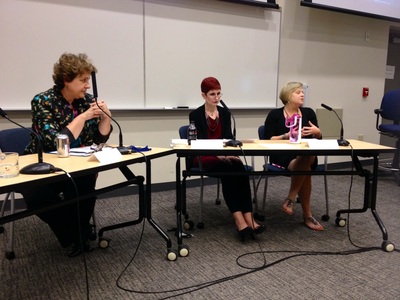
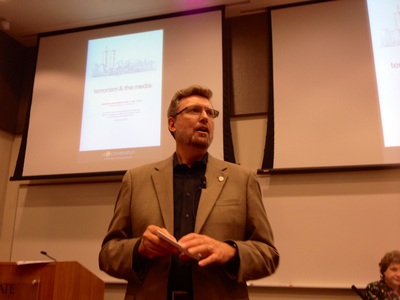
 RSS Feed
RSS Feed
